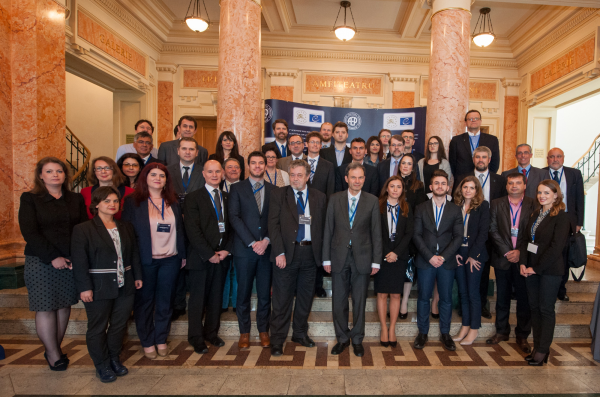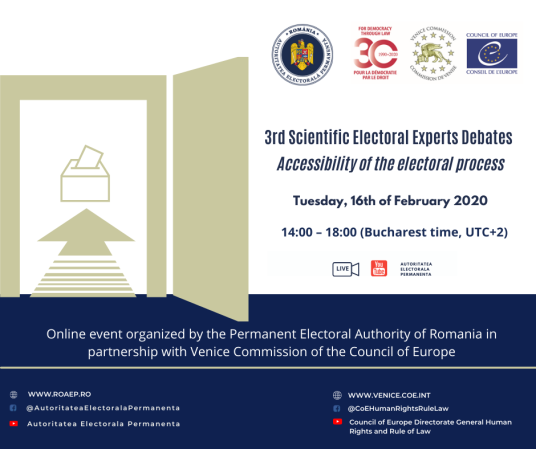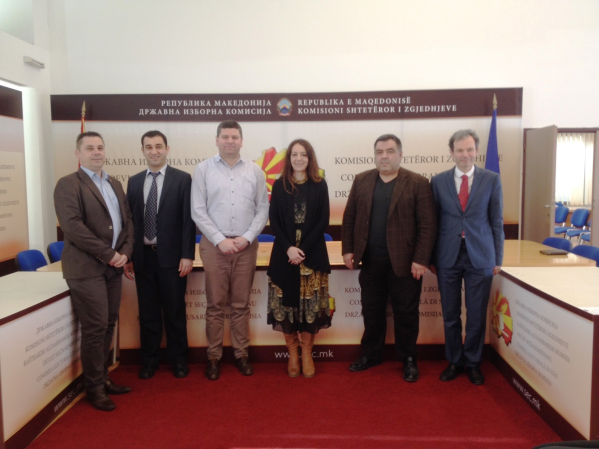Seminars, training workshops and assistance missions
|

|
On this page:
- Seminars
- Scientific electoral experts debates
- Electoral assistance missions
- Partnership for Good Governance
|
Seminars
The Venice Commission regularly organises thematic seminars in the electoral field. These seminars and conferences aim at disseminating the principles and recommendations of the Europe’s Electoral Heritage, which are mainly based on the Code of Good Practice in Electoral Matters, the reference document of the Venice Commission in the electoral field.
Here are a few examples :
-
Administrative Justice and Electoral Disputes - International Colloquium, Gammarth, Tunisia, 12 - 13/12/2019
The Commission organised in cooperation with the Administrative Tribunal of Tunisia, the German IRZ Foundation and the Arab Union of Administrative Justice an international symposium on "Administrative Justice and Electoral Disputes".
The President of the Venice Commission Mr Buquicchio addressed the participants during the first day of the colloquium.
The event took place in the framework of the Joint Council of Europe-European Union project “Improving the functioning, performance and access to justice in Tunisia (AP- JUST)”, funded by the EU and the Council of Europe and implemented by the Council of Europe.
- Regional interparliamentary conference on “Misuse of administrative resources during electoral processes: a major challenge for democratic elections” (London, 9-10 November 2017)
The Parliamentary Assembly and the Venice Commission, in co-operation with the Congress of Local and Regional Authorities of the Council of Europe, organised a regional conference entitled “Misuse of administrative resources during electoral processes: a major challenge for democratic elections”. Members of Parliaments and representatives of the Central electoral commissions of the countries beneficiaries of the Partnership of Good Governance participated in this conference as well as a panel of international experts, specialists in the topic of the conference.
Scientific electoral experts debates
 In 2016, in cooperation with the Permanent Electoral Authority of Romania, the Venice Commission initiated a series of scientific electoral experts debates. The Scientific Electoral Experts Debates are intended to become a regular event involving specialists of electoral law from various fields, including academia and electoral management bodies, to discuss issues having both a theoretical and a practical scope. They take place in Romania.
In 2016, in cooperation with the Permanent Electoral Authority of Romania, the Venice Commission initiated a series of scientific electoral experts debates. The Scientific Electoral Experts Debates are intended to become a regular event involving specialists of electoral law from various fields, including academia and electoral management bodies, to discuss issues having both a theoretical and a practical scope. They take place in Romania.
The 1st scientific electoral experts debate took place on 12-13 April 2016 on “Electoral Law and New Technologies: Legal Challenges”.
The debates, which brought together representatives of more than 30 European and Latin American countries, focused on the implications of constitutional and international law principles in the field. Such implications are not limited to the application of the fundamental principles of electoral law (universal, equal, free, secret and direct suffrage, stability of electoral law). They also include more general aspects of constitutional law such as legality, the separation of powers, federalism, as well as access to justice, proportionality and transparency.
The reports delivered on this occasion appeared in a special edition of the scientific "Electoral Expert" review published by the Permanent Electoral Authority of Romania in paper form and online. The Venice Commission and the Permanent Electoral Authority of Romania have decided to organise these debates periodically.
On 3 and 4 May 2018 the Second Scientific Electoral Experts Debates on “Equal suffrage” was held in Sinaia, Romania.

The participants discussed more specifically the following issues:
-
The various aspects of the principle of equality and their implications in the electoral field;
-
Equal voting power and allocation of seats to constituencies;
-
Equality and parity of the sexes;
-
Equality in a changing environment.
The reports presented during the debates were published in the only European review dedicated to electoral law, the Romanian Journal of Electoral Studies (formerly “Expert Electoral”).
The 3rd Scientific Electoral Experts Debates on “Accessibility of the electoral process” took place on 16 February 2021 online.

|
The Debates addressed accessibility of the electoral process, which is essential for the implementation of the universal suffrage - one of the main principles of electoral law. The online event approached accessibility from a conceptual point of view and not only as a practical issue, and therefore goes beyond physical accessibility. The reports submitted to the conference have been published in the Romanian Journal of Electoral Studies.
|
Electoral assistance missions
 The Venice Commission assists national authorities in the implementation of electoral legislation when required. For example, the Venice Commission gave its assistance on a regular basis to the Central Election Commissions of Albania, Armenia, Georgia, the Republic of Moldova and Ukraine. In the latter country, the Venice Commission organised in 2018 13 Roundtables on reform of electoral legislation (one in Kiev and 12 in regional centers) and two training seminars for judges.
The Venice Commission assists national authorities in the implementation of electoral legislation when required. For example, the Venice Commission gave its assistance on a regular basis to the Central Election Commissions of Albania, Armenia, Georgia, the Republic of Moldova and Ukraine. In the latter country, the Venice Commission organised in 2018 13 Roundtables on reform of electoral legislation (one in Kiev and 12 in regional centers) and two training seminars for judges.
In 2017, the Venice Commission, on two occasions, gave long-term assistance to the Election Commission of the “former Yugoslav Republic of Macedonia”*. In particular, this assistance dealt with the improvement of the review and appeal procedure, the internal procedures of the State Election Commission and the training of electoral commissions and voters.
See also: Support to strengthening democracy through electoral reform in the Kyrgyz Republic
Moreover, according to a 2004 agreement, the Venice Commission takes part as a legal councillor in the election observation missions of the Parliamentary Assembly. In 2018, such missions took place in Armenia, Azerbaijan, Bosnia and Herzegovina, Georgia, Montenegro, “the former Yugoslav Republic of Macedonia”* and Türkiye .
________________________________________________________________________________________________
*As of 12 February 2019, the official name of the country changed to the Republic of North Macedonia.